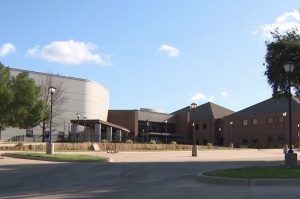How Can God Choose to Save Some but Not All? Pastor Responds

"How can God choose some and not all?" A Baptist pastor has attempted to answer this age-old question of salvation.
Clint Archer, who pastors Hillcrest Baptist Church in Durban, South Africa, which is an Evangelical Reformed Baptist Church, said the question has come up when discussing the topic of salvation.
Some believe it's "unfair for those not chosen" and that those who are chosen seem like "robots without free will, and that takes away our responsibility and lays it squarely on God," some would tell him.
Archer pointed to several important Bible verses on his blog earlier this week, such as 1 Timothy 2:3-4, which reads "... God our Savior, who desires all people to be saved and to come to the knowledge of the truth."
At the same time, the words of the apostle Paul in Romans 9:20-23 suggest that God makes "vessels of wrath prepared for destruction," he noted.
Seeking to explain how it is accurate to say that God "desires all to be saved," he positioned that God does not always get what He wants.
"God states that he desires for you not to gossip, lust, covet, be impatient, lose your temper, be discontent with your finances, etc. God expresses His will that people abstain from immorality, love their neighbor as themselves, and love Him with all their heart, mind, and strength," he wrote, noting that people fail to live up to those standards.
"We need to clarify that God has a will/desire which He states or expresses (called His revealed will), and a will/desire that He accomplishes or ordains (sometimes called His decreed will or 'secret will')," the Baptist pastor wrote.
"The former, His expressed will for us, He doesn't always get; but the latter, His ordained plan for the world, He certainly will accomplish. This ordained will is what we refer to when we say, 'It was God's will that I got robbed' (even though God revealed that His will is that people not steal). Or 'If God wills it, then I shall go to such and such a city,'" he added.
Archer positioned that God desires that all people know the truth and be saved.
"... God has more than one desire and some desires are higher than others. We all experience this ourselves: I desire my kids to be happy, but my higher desire is for them to be safe. So, even though they are happier when they eat Cheetos and cake all day and sit without a seatbelt in the car, my higher desire for their well-being means I enforce that they eat their broccoli, use a seatbelt."
While God desires for everyone to be saved, "his higher desire is to put all aspects of his variegated glory on display, including His justice, wrath, holiness, and mercy," he argued, admitting that it is not a "comfortable" answer, but believes it is a "biblical one."
Randal Rauser, professor of Historical Theology at Taylor Seminary in Edmonton, Alberta, tackled a similar question in a May op-ed in The Christian Post. Rauser argued that God wants all to be saved, but salvation is both simple and complicated at the same time.
"In one sense, salvation is simple. At least, it is simple if we focus on the general fact that God sent his Son to die for our sins so that we might be saved. But once you apply that general truth to the particularities of an individual life, that simplicity begins to dissolve," Rauser wrote.
"In its place we are left with a myriad of questions like these: Precisely what do you need to believe (and not believe) in order to be saved? How do you need to live? Are there sins that undermine your salvation altogether?
"Are there sins that undermine your salvation when they reach a particular level of frequency? And if so, when is that? Finally, when are you morally accountable for your beliefs and actions?"
The professor argued that God is "infinitely more loving, merciful, and wise than I can ever imagine," and that salvation, however it works out, "must be consistent with God's infinite love, mercy, and wisdom."





























